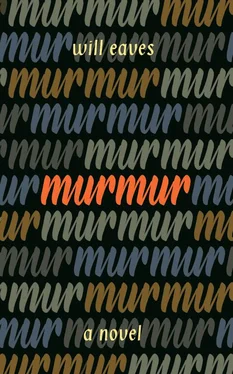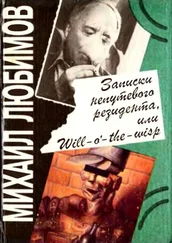When I met the young man who brought about my fall from grace, I knew I was heading for trouble. He stole from me. I found £3 missing from my wallet and wrote to Cyril (the young man), trying to break things off, but it didn’t work. He appeared on my doorstep like some kind of revenant fresh from the mists of time, and was very indignant, said that he wasn’t a thief, how dare I suggest it, I had more to lose, he could make life very uncomfortable for me, &c. I am still trying to get it straight in my head. The way things worked out, the way I couldn’t get rid of him suggested some odd loss of volition. I couldn’t change anything about what was happening.
Perhaps the die was cast. Perhaps everything is determined. Whatever you do to avoid something is the thing that brings it about. Prophecy, again.
Except that this misses something, like the glass without an image. It is too final and neat. To know that you are a pawn of justice and the fates is simultaneously to be more than that. And then the realization that the game is up opens a door behind your back, and Nemesis comes through it and without turning around you can tell that he’s an echo of someone you’d almost but not quite forgotten, a dead ancestor in a very young face.
Pain is memory without witness or corroboration. It isn’t real to anyone else, and that is what allows torturers, including governments, to be torturers. They can pretend it isn’t happening because it isn’t happening to them.
You are right. The time has come to meet. Gibbs’ Building is a very good idea. I can meet you there at any point. I have only to be at the Infirmary every Wednesday for my weekly instruction. Just let me know.
Love, Alec
*
Above Deauville a stratospheric haze has turned the sky into paper, the screen of an immense lantern. Beneath it, everything on earth blackens, poplars and landing stage, the vines and trellised plums, Matron, Stallbrook, their little rowing boat. Alone of all of us Christopher Molyneaux stays light—overexposed.
He steps into the boat, sits down, picks up the oars, and, weakening with every stroke, a chalk drawing, rows himself back across the lake. He’s quite naked beneath that foul blanket. Day strengthens and the sound of coming heat is in my ears. I am alive and unprepared. Words have condensed out of the early mist onto my tongue, but they are not the words I hear myself shouting—“But you are dead! So this must be a dream!”—and there is nothing I can do to save my friend, who drops his oar in confusion and in that moment almost seems recalled to life.
The blanket slips from his shoulders. He notices his arms whitening, the flesh become featureless smoke; perhaps, in the smooth water’s face, its pewter sky, he sees his own astonishment. The look coils round itself, a drapery study. He makes a last gesture, one desperate lunge for air, before an airborne shape, speeding toward us from the school, bears down upon the water, beats its wings, and tears the ghost of Christopher apart. His two halves roll away.
“Where has he gone? He didn’t want to go. He changed his mind! He—”
But the crow, the executioner, has passed judgment. His murderous friends jostle among the upper leaves. They are a dark council, glistening like eyes.
The Colonel presses gently on my arm and Matron steers me from the other side, as though I were an invalid. Maybe I am. The light condenses in the air and in the glass of the pavilion doors. I hear a bird cry like an animal in pain and there are flying skittles overhead—Canada geese, too small, too high—that don’t fly straight but shift and shimmer, loop and flash, caught in the sun’s rays like a shoal.
“He’s part of you now, anyway,” the Colonel says, “and part of me.”
“And me,” Matron agrees.
“He’s gone into the world around us, into every phase of matter—gas, liquid, crystal.” He stoops to take a pinch of sand between finger and thumb and rubs the grains, which must be very light. They seem to drift in a spotlit current. “The great statistical mystery. And there is nothing you can name, and no one, he is not strangely equipped to be. The lake will see to that.”
I know I’m sleeping but I feel as if I haven’t slept. Perhaps it’s just the confusions of youth and middle age here on the shore, watching the poplars fill and sway, my toes trying to grip the grit. I’m at a point of division where I can’t tell the elements apart; the living and the dead are land and sea, the tessellations of a sphere.
Stallbrook and Matron walk me from the lakeside to the summerhouse, where I held Molyneaux last night. One pane of the French doors is sun. The others harbor darker images, three figures star-blinded, their features struck clear from the plate. We pause on the threshold. My guides have shed their institutional anger. They seem less obviously the stern authorities of Wargrave School, although I find their facelessness—they register beside me as mere shapes—distressing, too.
My suspicion is old. I swam here as a boy. Now I am changed. It is as if I watched myself cross over from the lake’s far side. Can that be so? Is this my living shape? I seem to see another version of myself in the dark glass, a glimpse of states I had, states that will come to be, an infinite progress of frames.
Into the summerhouse we pass and on the threshold, which, like all thresholds, exists only in light of what happens, the room in front of us deforms and rearranges its extent, as if to demonstrate a problem in topology. No more a sanctuary, its open aspect hardens into clinical austerity. Where there were once French doors and rugs, blankets, there’s now a bare table, a gurney in the far corner, its nondescript mattress panting with straps. The door behind me wears a small panel of wire-mesh glass like something glimpsed in the distance. It brings to mind detention, war, reports.
On one side of the table are two semi-childish classroom chairs. The nearest to me holds a subtly older version of the schoolboy Christopher, his uniform and shoes the same but indefinably unloved, speckled with dust, worn at the cuffs.
The other has a freak in it.
He is the spit of someone else. He’s naked, open-mouthed, the same age as his smart neighbor. He sits in the light-cone of one of those green-shaded lamps on chains that seem always to be caught in the act of lowering themselves. His lovely, unbelieving eyes follow Matron, moving behind the men. She scuttles off to fetch from the shadows a small trolley, on which the needles and neat swatches of white gauze are laid like so much cutlery and cake.
Thresholds, membranes, molecular illusions of separate things—and then the growling continuity of force, number, and medium. I am the universal lake. Out of me every living body slowly forms. I hold this room in my vision, and into that thin layer of contemplation everything I see falls steadily, fetal and desolate as a small bathysphere in the Atlantic night. The room begins to jolt and creak under pressure. It is an ordinary room. It is an egg in hot water, an air bubble upon that egg. It is the chained box in Houdini’s tank. And as Stallbrook paces the room, throwing glances, at me, at the low concrete-poured ceiling on which a massive boot begins to stamp, at his two prisoners, I feel the temperature rising—heat loss and fear. Is that water, sliding along a corridor outside, the voice that says “this, too; now this…”?
“Time is against us, gentlemen,” Stallbrook reveals, hands offered up in submission, the old familiar drifting voice graveled with care. Is his anxiety sincere, or faked? “A life has gone missing, and very possibly another is about to slip the net. Their rescue—their retrieval —must depend on what we can learn, here, today.”
Читать дальше












